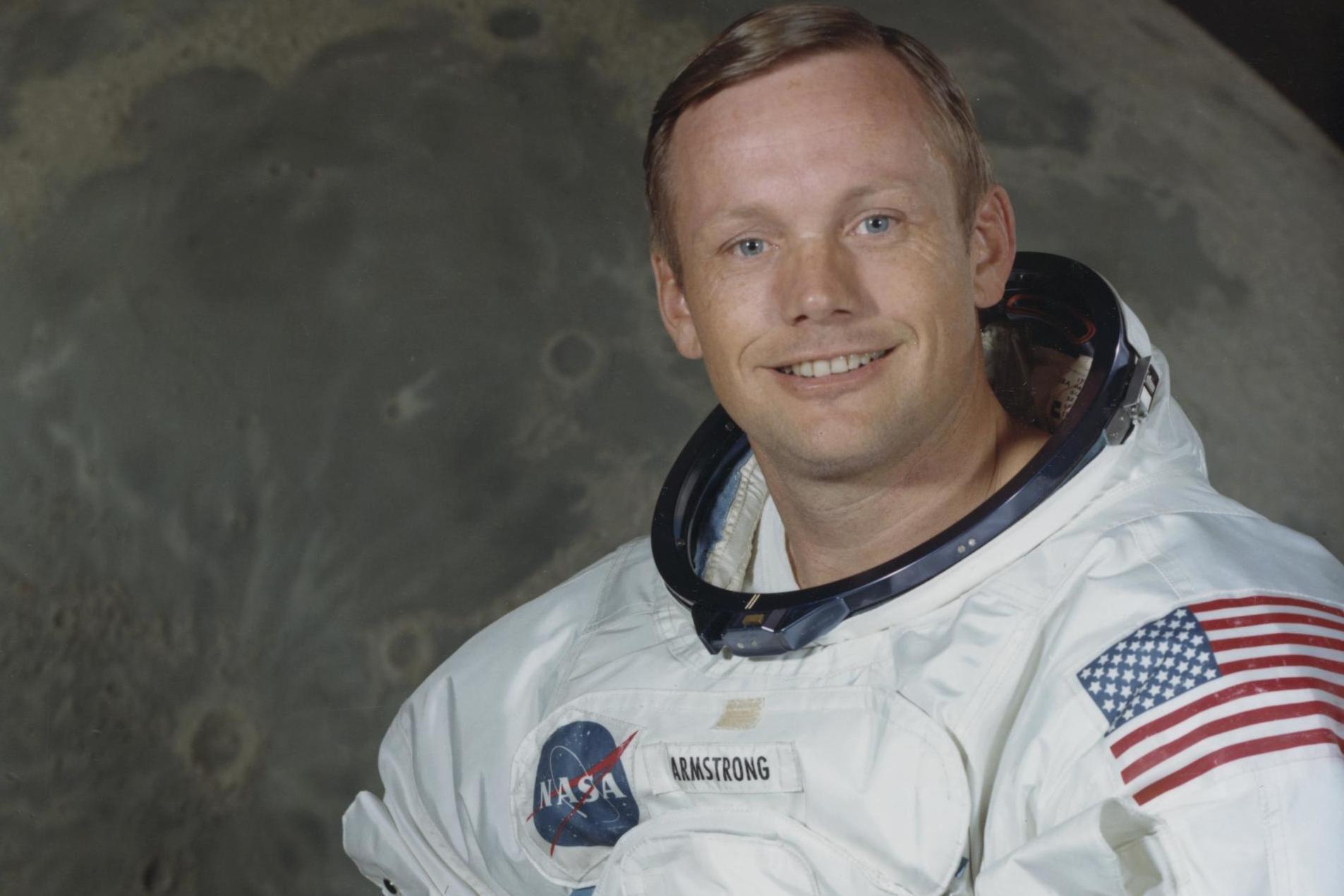Neil Armstrong: Astronaut's family received secret $6m settlement from hospital following his death
Armstrong died in 2012 from 'complications resulting from cardiovascular procedures'

A hospital reportedly paid Neil Armstrong’s family members a $6m (£4.8m) settlement after it was alleged medical malpractice lead to the astronaut’s death.
On Tuesday, The New York Times reported that two years after Armstrong died in 2012 after undergoing an emergency heart surgery at Mercy Health Fairfield Hospital in Cincinnati, Ohio, the hospital paid the family as part of a secret settlement.
According to the 93-page report, which was sent to the newspaper anonymously this week and confirmed authentic through public records available in Hamilton County Probate Court in Ohio, Armstrong’s two sons brought a wrongful death lawsuit against the hospital shortly after their father's death for errors in post-surgical treatment of the 82-year-old.
Two weeks before the astronaut's death, he had undergone cardiac bypass surgery on 7 August 2012 and was reportedly recovering.
However, according to the outlet, when nurses went to remove temporary wires in place to help pace his heartbeat, “Mr Armstrong began to bleed internally and his blood pressure dropped”.
Rather than taking Mr Armstrong into emergency surgery, doctors instead took the 82-year-old to a catheterisation lab where they drained blood from around his heart to “prevent it from being pressed and hampered by the accumulated fluid”.
The astronaut, the first man to step foot on the moon, was then transferred to the operating room, where The Times reports “the records do not make clear what doctors may have done there, but he appears to have lingered for a week or longer before dying”.
At the time of Mr Armstrong’s death on 25 August, it was announced by his family that he had died of “complications resulting from cardiovascular procedures”.
According to medical experts hired to review the hospital’s care by both the family and the hospital, the decision not to bring Mr Armstrong into the operating room when he began to experience post-surgery complications is what lead to his death.
“The decision to go to the cath lab was THE major error,” Dr Joseph Bavaria, a vice-chair of cardiothoracic surgery at the University of Pennsylvania who reviewed the records at the request of the Armstrong family, wrote in the report, according to The Times.
In a July 2014 email to the hospital, Wendy Armstrong, a lawyer and the wife of Mark Armstrong, suggested that the astronaut’s sons would discuss their father’s faulty care at an event at Kennedy Space Centre commemorating the 45th anniversary of the first moon landing if the hospital did not settle.
Another email to the hospital, from lawyer Bertha G Helmick, who was acting as a representative of Mr Armstrong’s grandchildren, stated: “No institution wants to be remotely associated with the death of one of America’s greatest heroes.”
Despite denying the malpractice claim, Mercy Health agreed to pay $6m to the family to “settle the matter privately and avoid devastating publicity”, according to the documents.

The news of the secret settlement comes just days after the 50th anniversary of the Apollo 11 mission and moon landing.
Join our commenting forum
Join thought-provoking conversations, follow other Independent readers and see their replies
Comments
Bookmark popover
Removed from bookmarks